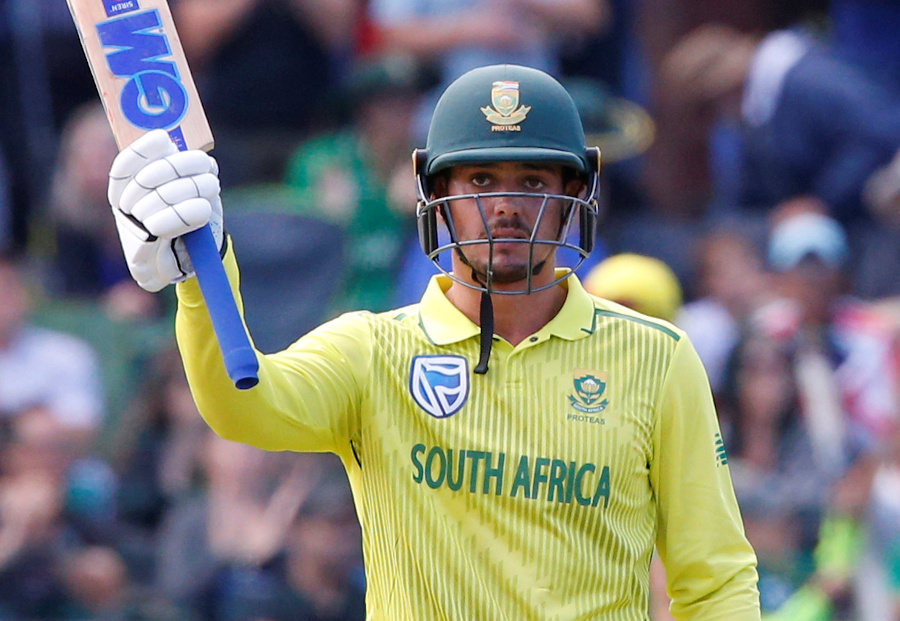Quinton de Kock’s sensational return to form has reaffirmed his unequivocal value as the most important member of the Proteas squad for the T20 World Cup, writes CRAIG LEWIS.
De Kock averages 32.75 at a strike rate of 138 in international T20 cricket.
He is the Proteas’ most lethal weapon at the top of the order, and holds the key to ICC tournament glory for South Africa in a format where one player’s performance can determine the outcome of a match.
Before getting to that, though, let’s rewind to the end of 2020, and the start of 2021. De Kock could not buy a big score.
In a T20I series against England, the highest score he could muster was 30, while in the subsequent Tests against Pakistan and Sri Lanka, he top-scored with a lowly 28 in six innings.
In his final knock of the series against Pakistan on 4 February, De Kock capitulated to a first-ball duck, and honestly looked like a shadow of his former self.
However, in fairness, De Kock had spoken openly about the toll of touring and playing in the new norm of bio-bubble environments that restrict movement and confine players to extended periods alone in hotel rooms.
Several years ago, I once interviewed De Kock during a previous edition of the IPL, and even then it was clearly evident how much he was struggling with extended periods living out of a hotel.
Fast forward to the present, and it’s clear that the destructive wicketkeeper-batsman has rediscovered his natural feel for the game, particularly now that the burden of captaincy has been taken off his shoulders.
After a well-played 80 in the second ODI against Pakistan in early April, the signs were there that De Kock was rediscovering his mojo.
What has followed is a remarkable sequence of scores in all formats of the game: 141*, 96, 0, 37, 26, 72, 60, 60, 120, 20, 27.
Yes, the West Indies and Ireland have not presented the most challenging opposition he has ever faced, but don’t discount the significance of De Kock’s return to form.
Some technical concerns around a closed bat-face seem to have been eradicated, and he is suddenly playing with the confidence and freedom which suggests his game is working for him once again.
At a time when there are plenty of other question marks about the composition of the Proteas’ best T20I team and the form of other leading players, De Kock’s revival is as welcome as it is timely.
In mid-October the T20 World Cup will get under way in the UAE, and if South Africa are to have any hope of mounting a competitive campaign, they will need De Kock firing on all cylinders at the top of the order.
Almost single-handedly, he has the ability to provide the Proteas with the confidence and momentum that has often been lacking with the bat.
Long may it continue!







